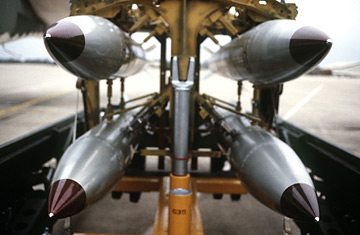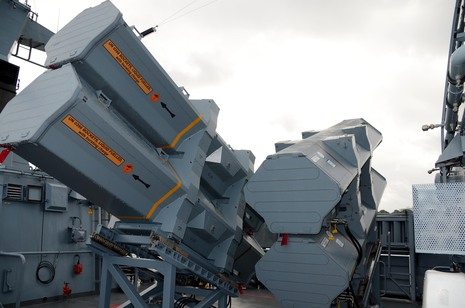Representative Ed Markey (D-MA) is urging members of the Super Committee to make substantial cuts to the U.S. nuclear weapons budget, calling the $50-billion-a-year price tag an “outdated radioactive relic.”
In a letter that began circulating around the Hill this morning, titled, “Freeze the Nukes, Fund the Future,” Markey said that cutting $20 billion each year from nuclear weapons–a total of $200 billion over the next ten years–is consistent with the New START Treaty, which aims to reduce deployed strategic warheads in the U.S. and Russia.
Markey argued that the current nuclear weapons budget is a hold-over from Cold War-era politics:
“We can no longer justify spending at these levels. We can save hundreds of billions of dollars by restructuring the U.S. nuclear program for the 21st century.”
Markey’s proposal is a sensible position that Democrats and Republicans alike can get behind for the sake of the deficit. As POGO outlined in its Recommendations for National Security Savings (a joint effort with non-partisan budget watchdog Taxpayers for Common Sense), the U.S. could save taxpayers $14.5 billion by cutting four unnecessary nuclear weapons projects:
- Almost $650 million has already been spent on a facility at Savannah River to convert excess plutonium into mixed oxide fuel (MOX). Unfortunately, there are no current buyers for MOX, making the facility superfluous. Halting further construction could save $4 billion.
- The estimated cost of the Chemistry and Metallurgical Research Replacement-Nuclear Facility (CMRR-NF) at Los Alamos National Laboratory has increased ten-fold since the project’s inception, and the Energy Department has yet to prove its necessity. The fact that CMRR-NF is to be built along a fault line and near an active volcano isn’t making construction any easier. Nixing the facility could save $2.9 billion.
- The Uranium Processing Facility (UPF) at the Y-12 National Security Complex could cost taxpayers $6 billion, when existing facilities could be modernized and perform the same functions as UPF.
- The U.S. has about 200 B61 nuclear bombs in Europe and is planning on modernizing them, at a cost of $1.6 billion. However, the U.S. is in talks with NATO to remove its tactical nuclear weapons from Europe, which would make modernization unnecessary.
Instead of these money-draining programs, a reasonable nuclear budget, like the one Markey is proposing, could go towards money-making projects. The U.S. currently has about 400 metrics tons of excess highly enriched uranium. Making a small investment in this process and converting even 300 metric tons of it into low enriched uranium–which nuclear power plants can use as fuel–could generate revenues of $23 billion.
Markey’s letter has opened up a conversation that we hope continues. Now it’s a matter of Members from both sides of the aisle joining him in the realization that cutting the nuclear weapons budget will save money without compromising national security.











